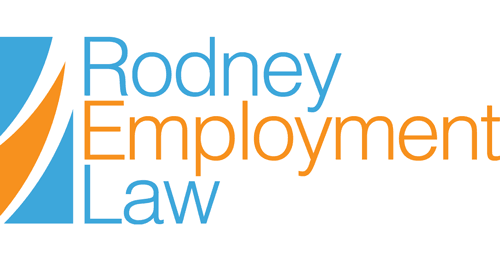Flight Risk: Lessons Learned from Politicians Travelling Against their Own Advice
 It is more than likely that your December holidays were relatively uneventful. While a few days off are a nice break from work, rapidly increasing COVID numbers kept most Ontarians in their own homes – restricting traditional family visits and gatherings. This was especially difficult for those for whom the holidays are a rare occasion to see far away friends and relatives, with holiday travel plans largely stymied due to the pandemic. Instead, the majority of the province was braving the winter’s cold, all while dreaming of faraway sandy beaches, crashing waves, and brilliant tropical sunshine.
It is more than likely that your December holidays were relatively uneventful. While a few days off are a nice break from work, rapidly increasing COVID numbers kept most Ontarians in their own homes – restricting traditional family visits and gatherings. This was especially difficult for those for whom the holidays are a rare occasion to see far away friends and relatives, with holiday travel plans largely stymied due to the pandemic. Instead, the majority of the province was braving the winter’s cold, all while dreaming of faraway sandy beaches, crashing waves, and brilliant tropical sunshine.
Unless, of course, you happen to hold elected office.
Numerous politicians at the federal and provincial levels have recently found themselves in hotter water returning home than their tropical destinations offered while they were away. These individuals, representatives of various provinces and the federal government who practically begged their citizens to stay home and stop the spread, found themselves in locations throughout the Caribbean and overseas. In perhaps the most notable instance, Ontario’s finance minister was not only on holiday in St. Bart’s for several weeks while the province’s COVID numbers escalated, but his Twitter account posted numerous tweets in his absence that led people to believe he was, like those constituents he represents, staying safely at home. The Minister resigned in humiliation on the morning of his return.
The legislature is, of course, a non-traditional workplace, and politicians more often fall victim to public scorn and ridicule than they do to the consequences of workplace policies. Yet these high-profile incidents have led many of our clients to ask about how they should be handling employees’ travel requests this year, or at least until COVID-19 is no longer a widespread public health concern.
Vacation Do’s and Don’ts
Under Ontario’s Employment Standards Act, which is the foundational law that governs non-unionized and non-federally regulated employees in Ontario (roughly 70%), “an employer shall give an employee a vacation of at least two (2) weeks after each vacation entitlement year that the employee completes,” or a minimum of three (3) weeks per year if the employee has been with the employer for more than five years. While this legislation is often confused for the requirement for employers to pay vacation pay – the two are actually separate sections of the law. Employees are, by law, entitled to vacation time off.
However, this does not mean that an employee’s vacation can be taken entirely at their discretion. Employers do have the capacity to restrict when an employee is entitled to take their vacation, such as when retail outlets customarily mark the busy holiday season as a ‘blackout period’ when all staff must be available. Employers must protect the best interests of their business, so they are free to prevent vacations that would put the business into jeopardy.
But what about controlling an employee’s destination? Before mid-March 2020, this has rarely been an issue, as international crisis zones have rarely been a travel hot spot. Yet COVID-19 has required serious travel restrictions across borders and made one’s travel destination (or their decision to travel at all) an issue of contention.
Location, Location, Location
When it comes to determining an employee’s travel destination, employers have significantly less control. Employers are, broadly speaking, responsible for the health and safety of their workers – but control over employee’s decisions is limited outside the workplace. This includes their choices of vacation destination.
While Canada’s land border with the US is closed save for essential services, and flights are greatly reduced, it is physically possible to travel to most countries right now, as it has been through much of the pandemic. Thus, employers cannot physically stop employees from any one place. They are obliged to inform employees of any public health alerts, and can ask employees not to travel to locations that have been identified as high-risk by public health authorities, but the law recognizes that employees have the ultimate autonomy over their personal travel.
However, employers do have control over how an employee conducts themselves upon their return. Employees must be aware that they may be made to quarantine under government health regulations for a period of time upon their return, and remote work may not be an option given the nature of their duties. Employers can also put the kibosh on any non-essential business travel, as many employers have since last March.
A Few Souvenirs
The primary reason for ire over news stories of politicians’ secret travel plans is the duplicity of their actions, or to put it simply, the ‘do as I say, not do as I do’ approach. While employers and other workplace leaders are not held to the same level of public scrutiny, their actions and behaviours are certainly ripe for scrutiny by their employees, and even their clients, customers, and shareholders. It is imperative that leaders act honestly and lead by example.
The answer for employers is a common sense one – practice what you preach. Follow public health guidelines and hold yourself to the same standards as you would expect your employees to follow.
The other solution, as always, is to have a solid workplace policy in place. Employers can set clear vacation policies to determine both the employer’s and the employees’ rights and responsibilities when it comes to vacation, including policies around scheduling, and requirements when travelling during a public health crisis.
If you find yourself facing a workplace issue or want to make sure that your workplace policies are properly protecting your team as well as your business, reach out to us today for assistance at [email protected] or complete our contact form here.
